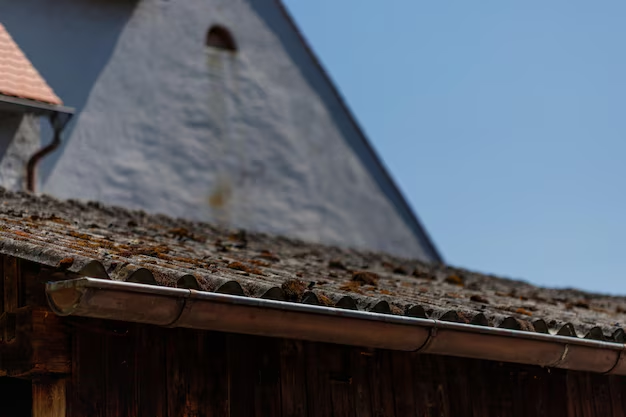Understanding Shingles: How Long Until It Clears Up?
Shingles is a common, yet often misunderstood condition that can leave sufferers in agony, wondering how long the ordeal will last. For those experiencing shingles, or for someone concerned about a family member, getting a clear picture of this condition's progression can provide both relief and a plan of action. Here, we delve into the various aspects of shingles, from its duration to related factors, to help you gain a comprehensive understanding, all while providing practical insights to navigate this condition confidently.
What Exactly Is Shingles?
Shingles, known clinically as herpes zoster, is a viral infection that results in a painful rash. The same virus, known as varicella-zoster, that causes chickenpox also causes shingles. After a person recovers from chickenpox, the virus doesn't entirely exit the body but instead lays dormant in nerve tissues. Years later, it may reactivate as shingles, typically manifesting as a strip of blisters on one side of the body or face.
Typical Duration of Shingles
The Course of the Condition
From the onset to resolution, shingles usually follow a distinct progression:
Prodromal Stage (1-5 days): Before the rash appears, individuals often experience tingling, itching, or pain in the area where the rash will develop. General flu-like symptoms such as fever or headache may also be present.
Active Stage (7-10 days): The active phase begins with the appearance of the rash, which quickly develops into fluid-filled blisters. These blisters eventually burst and crust over.
Healing Phase (2-4 weeks): The skin heals over two to four weeks, but the associated pain can persist even after the rash has cleared. This persistent pain, known as postherpetic neuralgia, can last for weeks, months, or, in rare cases, longer.
In summary, the active phase of shingles typically lasts 3 to 5 weeks, although some symptoms might persist longer.
Factors Influencing Recovery Time
Everyone’s experience with shingles is unique, and several factors can affect the duration and intensity of the symptoms:
Age
- Older Adults: Those over the age of 50 are at a higher risk of more severe symptoms and complications, leading to a potentially longer recovery period.
Immune System Health
- Weakened Immunity: People with weakened immune systems, such as those undergoing chemotherapy or living with HIV, may experience a more prolonged or severe course of the disease.
Initial Response and Treatment
- Timely Medical Intervention: The sooner antiviral medications are administered, the more they can help reduce the severity and duration of the illness.
Complications to Watch Out For
While most cases of shingles resolve without significant complications, it is critical to recognize potential issues early on.
Postherpetic Neuralgia (PHN)
- Persistent Pain: This condition occurs when nerve fibers are damaged during an outbreak, leading to persistent pain in the area where the shingles rash was present. While it usually improves over time, the discomfort can be significant for those affected.
Ocular Shingles
- Eye Health: If shingles develops around the eye, it can lead to serious eye problems or vision loss if not treated promptly.
Other Complications
- Widespread Rashes: In rare cases, shingles can cause a widespread rash that resembles chickenpox, particularly in individuals with weakened immunity.
Taking Steps to Manage and Mitigate Symptoms
Topical Treatments and Self-care
Taking measures at home can play a significant role in alleviating pain and speeding up recovery:
Cool Compresses: Applying cool, moist compresses can help reduce discomfort.
Regular Cleansing: Gently washing the affected areas with mild soap and water helps prevent secondary bacterial infections.
Comfortable Clothing: Wearing loose-fitting clothing can prevent irritation.
Stress Management
- Mindfulness and Relaxation: Engaging in activities that reduce stress, such as yoga or meditation, can positively impact your recovery.
Seeking Support
- Family and Community: Lean on friends, family, or support groups during this time for emotional support and practical help.
Can You Prevent Shingles?
While a complete avoidance isn't guaranteed, there are ways to significantly reduce the risk:
Vaccination
- Shingles Vaccine: A vaccine, particularly for adults over 50, can effectively prevent shingles or minimize the severity if it does occur. It's a key preventive tool worth discussing with healthcare providers.
Boosting Immunity
- Healthy Lifestyle: Regularly engaging in exercise, maintaining a balanced diet, and ensuring adequate sleep contribute to a robust immune system.
Addressing Triggers
- Avoiding Known Triggers: If you've previously experienced a shingles outbreak, recognize and manage potential stresses or triggers that may have contributed to the activation of the virus.
Journey Through the Healing Process
Navigating shingles can be challenging, but gaining a deeper understanding of the condition helps in managing expectations. With sore patience, self-care, and timely intervention, most individuals can expect to see the end of their symptoms within a few weeks. Remember that while the virus reigns, you are ultimately stronger, equipped with the knowledge to navigate these rough waters.
As you face shingles, prioritize your comfort, seek support, and explore treatment options thoughtfully. The episode might be challenging, but armed with the right information, overcoming it becomes a shared possibility.
Key Takeaways in Brief
- ⌛ Timeline: Shingles typically resolves within 3 to 5 weeks, but some symptoms might persist longer.
- 🔍 Early Signs: Look out for tingling or itching before a rash develops.
- 👴 Age Factor: Older adults may experience more severe symptoms.
- 💉 Prevention: Vaccination can significantly reduce risk.
- 🛌 Self-care: Regular cleansing and wearing loose clothing can ease discomfort.
- 👀 Eye Caution: If symptoms appear near the eyes, seek prompt medical attention to avoid complications.
- 💪 Immune Health: A healthy lifestyle supports a strong immune defense.
- 🌀 Stress Management: Activities like yoga can aid in recovery.

